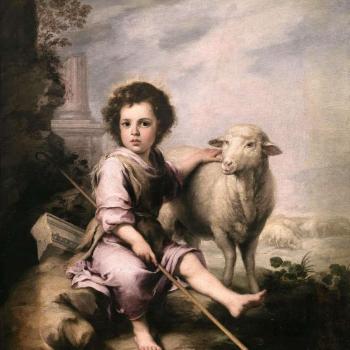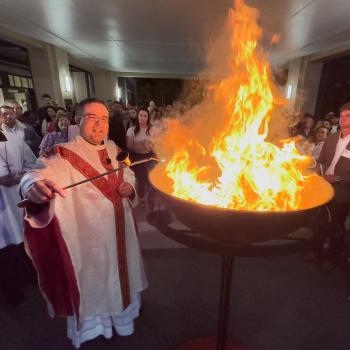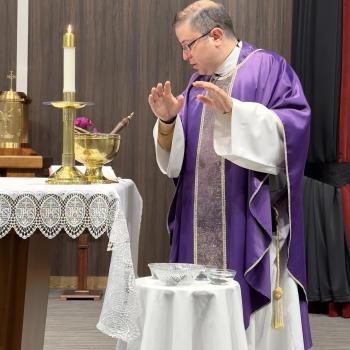[This post is about the meaning of the word many. Seems trivial? It’s very important, especially if you’re Catholic!]
If I had a group of three brown and three red m&ms;, would you say I have many m&ms;? Probably not. You would say I have a few.
If I had a group of 1000 brown and three red m&ms;, would you say I have many m&ms;? You would probably say yes.
I would not be able to say ‘I have many red m&ms;,’ but I could certainly state ‘I have many brown ones.”
Suppose I eat the three red m&ms.; Is the statement ‘I have many brown m&ms;’ still true? It certainly is. Many is used as a quantity that includes all the members of the group. It represents all the brown m&ms.; By saying ‘I have many brown m&ms;’ I am speaking of all the m&ms; I possess without excluding any.
If I say, ‘there were lots of people at the concert last night’ I could easily say instead, ‘there were many people at the concert last night.’ Using the word many does not exclude anyone who attended the concert. It describes a group with a large quantity of members.
The following statement makes perfect sense and uses the word many to include all members of a group: ‘Every single person I invited came to the reception. Many people were present.’
It is now established that the word many may be used to refer to every member of a sizeable group without assuming the exclusion of any members.
The following statement also makes sense: ‘Many of the customers who bought the new product were under thirty.” In this case, many is used in a manner that assumes division in the group. Many were under thirty, but other members of the group were over thirty.
This last example shows the flexibility of the word many. At times it is used as a quantity that does not exclude or divine groups, but other times it is used in a manner that divides a group. It is not automatically a word that infers division and exclusion, even though it can accomplish that also.
Therefore, the word many serves two functions in language. It can refer to a complete sizeable quantity and it can refer to a large quantity in comparison to another quantity. The first one is inclusive, the second exclusive.
The words of consecration with the upcoming new translation of the Roman Missal will state (following the words of Jesus in Matthew 26):
TAKE THIS, ALL OF YOU, AND DRINK FROM IT,
FOR THIS IS THE CHALICE OF MY BLOOD,
THE BLOOD OF THE NEW AND ETERNAL COVENANT,
WHICH WILL BE POURED OUT FOR YOU AND FOR MANY
FOR THE FORGIVENESS OF SINS.
DO THIS IN MEMORY OF ME.
The blood of the eternal covenant will be poured out for you and for many. Is the use of the word many here inclusive of all members of a group or is it exclusive?
The word many is used to denote a very large number of people that can possibly be so large that it includes every single human being in the world: all people. The six billion inhabitants of our planet can be described as ‘lots of people’ ‘all people’ ‘many people.’ The billions of human beings who have lived before us can also be described as ‘many people.’
The meaning of the words in the new translation is the same as in the old, “It will be shed for you and for all so that sins may be forgiven.” The use of the word many in the new translation is not exclusive, but rather inclusive, including all human beings that have lived, live and will live.
The phrase “for you and for many” does not mean only a limited, exclusive number of people benefit from the pouring out of Christ’s blood. It means that a very large quantity of people benefit, all of humanity.
















